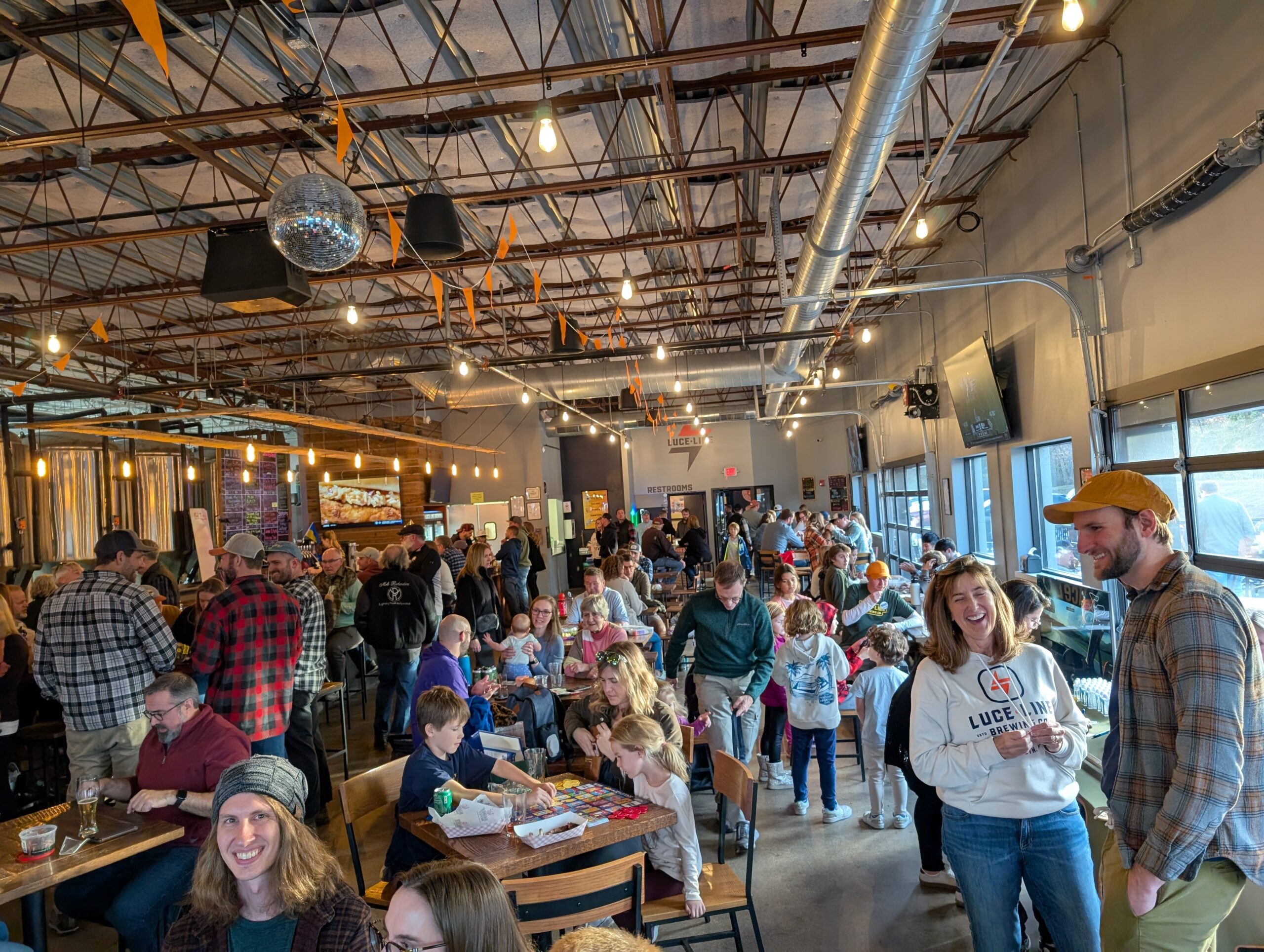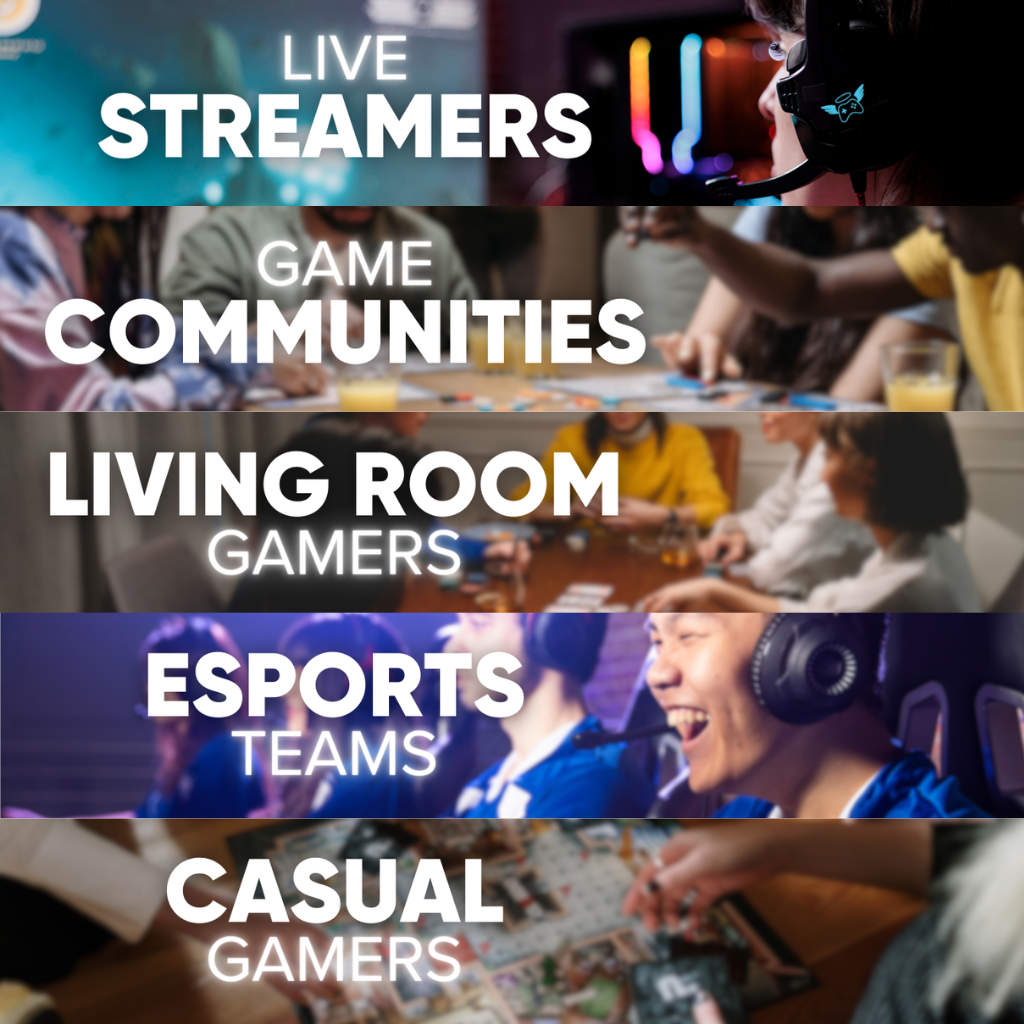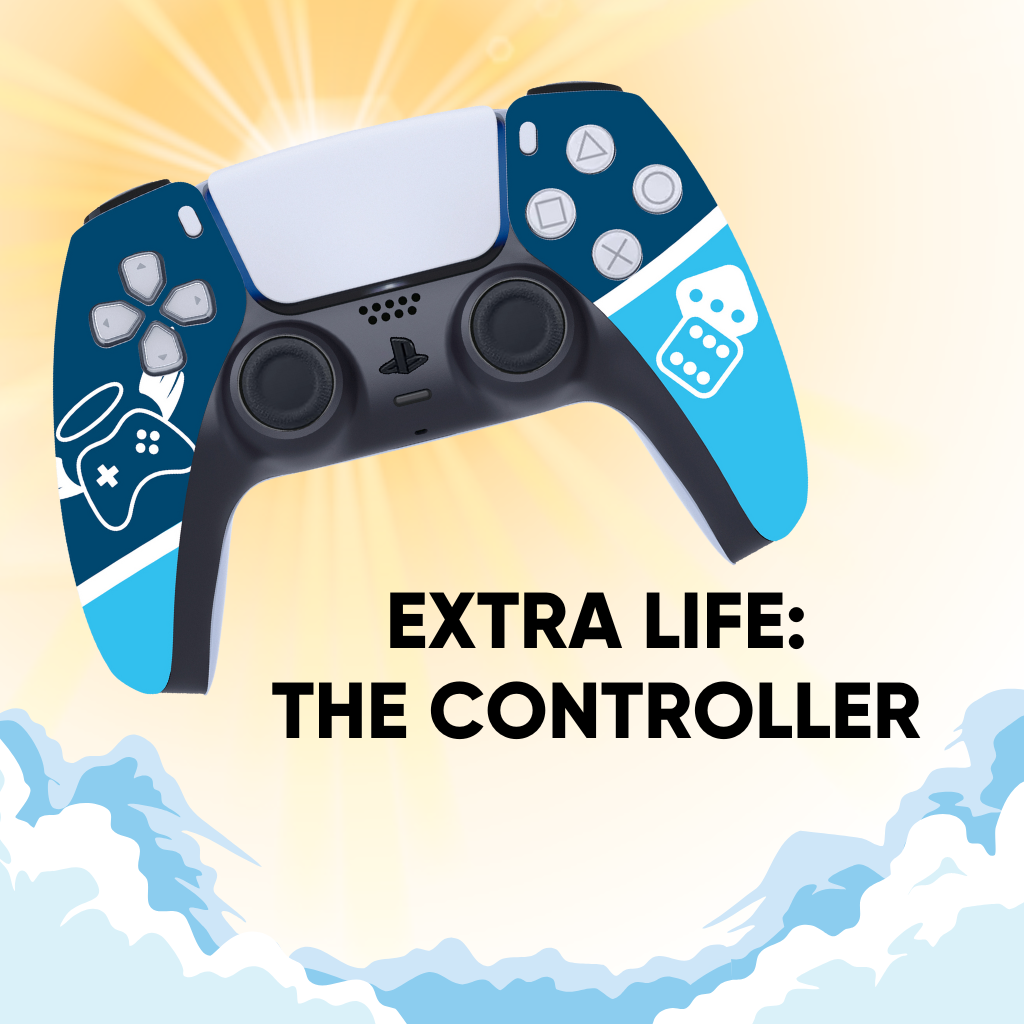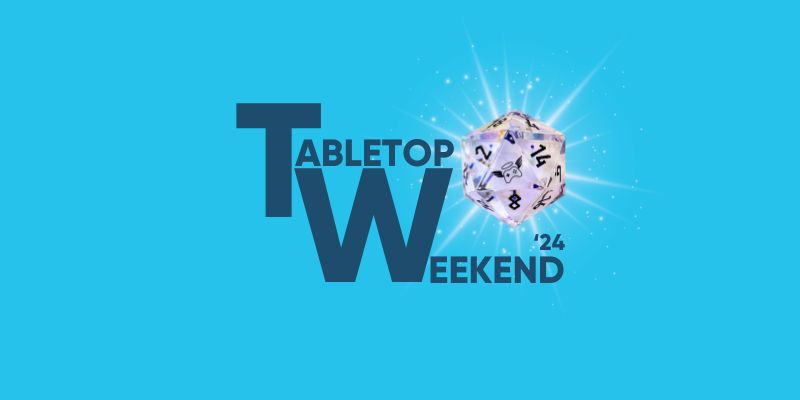The Past, Present, and Future of Blackness in Tabletop with Tanya DePass
The Extra Life community is united in our passion for helping kids and we have incredible diversity within this group of over 50,000 charitable gamers. This week we interviewed Tanya DePass of I Need Diverse Games and Rivals of Waterdeep, an officially contracted show by Wizards of the Coast. Tanya gave her thoughts on how black folks have been treated in the tabletop gaming community, the current state of things, and where she hopes black voices might go in the future. It was a lovely interview and we are sincerely grateful for her time.
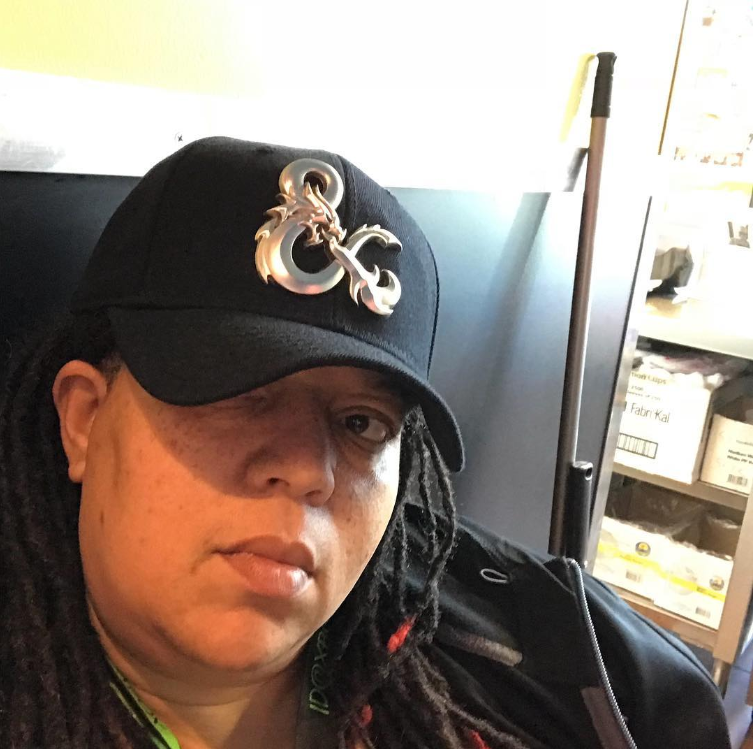
Jack Gardner: Rivals of Waterdeep has been built up on top of a long history of people of color working to make their voices and ideas heard in the tabletop gaming industry. How do you view that legacy? What does the wider history of black tabletop development look like in your eyes?
Tanya DePass: I’m trying to think of black people in the space. This is telling on myself; I did not know that Mike Pondsmith was black until I met him, you know [the guy] who did the Cyberpunk 2020 game and is now one of the main folks at R. Talsorian, etc. And his son Cody Pondsmith did The Witcher RPG. They’ve been doing this for a long time. There are so many people that we don’t get to meet, that we don’t get any acknowledgment of except during Black History Month or if they are guests at a convention, something like that. There have always been black folks involved in tabletop and in other areas, we’re just not visible.
JG: Video games often get the focus for black game designers, but how do you view the state of tabletop when it comes to black people breaking into development?
TD: I don’t know how old Mike is, but he might just be that generation of black folks where it’s like, “You know what? I have talked about this enough. The world has already forced me to be seen as nothing but black, and that’s all they see. They don’t want to talk about anything else.” I’ve seen a lot of people like that and experienced it myself. For this short 28, and this year 29, days, people remember that black folk- that black creators exist. They can trot out all the names they want. Twitch does their focus on a creator per day just for two hours on the front page. Or [Mike] may have done interviews and they are just lost to time.
I had heard the name, but because it’s tabletop I had made the assumption, I am ashamed to say, that he was just another white dude in tabletop until I met him, until he and his son were guests at the convention I work with. But sometimes you just want to talk about your work. I mean, I do that, too. I just get to a point where I simply want to talk about the things I am doing.
Up until now- where I am working with Green Ronin and the RPG based on NK Jemisin’s [Broken Earth] trilogy. Next year at Orca Con we are celebrating black creators, and I am so happy that there are more black people working on RPGs than we can feasibly afford to invite. Even 5-10 years ago, would people have had that visibility? Our list is about 25-28 people long and there are still so many more people we could invite if we had an unlimited budget or people had unlimited time and we were asking year-round.
I think it has to do with the visibility that RPGs have when it comes to online with streamed games with people being able to create their own work and kickstarting. For all of the evil that the internet can do, Twitter and Kickstarter and social media, ways to promote their own work, Patreon for example, there is more ability to be seen even if people can’t go to Gen Con, can’t go to PAX Unplugged. Depending on where you’re coming from, you could easily spend up to five thousand dollars, and if you are exhibiting even more to pay for a booth and staff. There are so many more ways for people to be visible and show their work, to show they are out there even if they can’t go to a convention and have a table.
JG: According to a study in Analog Game Studies, about 94% of the top 200 tabletop games were designed by white men. Why do you believe such a drastic disparity exists?
TD: It is due to so many different factors. Some of it is access. Some of it is strictly the money to [make games]. A lot of the people who make games, at least if they are younger, maybe in their twenties, they’re not at a point in their life where they have to worry about a mortgage or kids. If they put everything into this game and it fails, then they are screwed. [The alternative is that] they have money, they come from money. They can afford to try this and see if it works. But again, it also comes down to, who can afford to go to conventions? Who can afford to make those connections and go to meetings and go to Gen Con and go to Origin’s game fair, stuff like that? Those spaces have been primarily old, white men. It’s like the old boys club, it’s like a fraternity for a lot of people. And it’s very hard to get a foot in the door. For every person of color, specifically black folks, who are visible, who are making their own game or even working at one of the major publication houses, how many different people never felt welcome enough to even try?
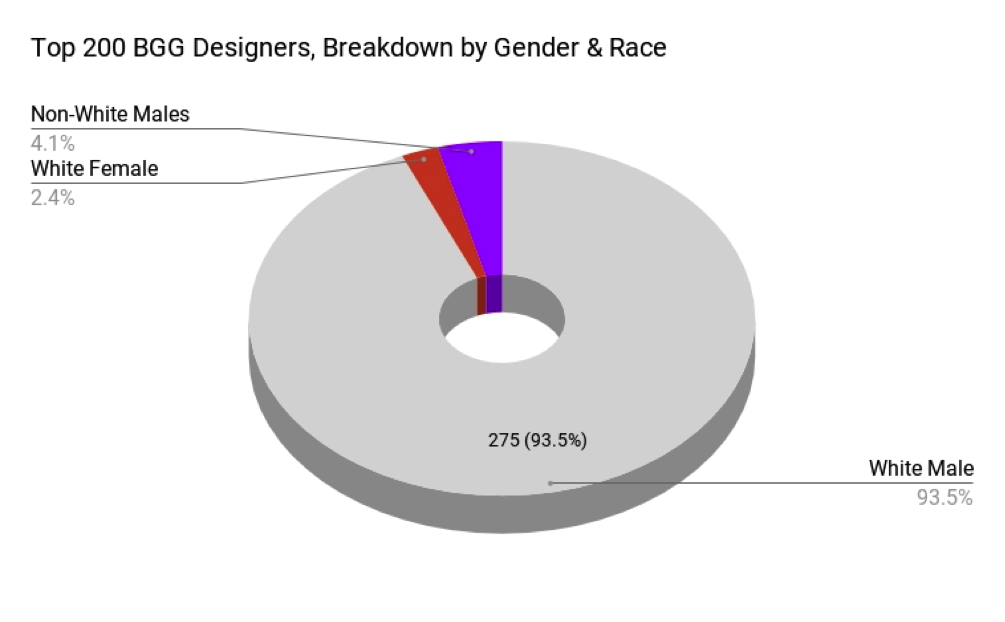
Even though I am heavily involved in tabletop now, I stepped away from it for a very long time because of feeling like I wasn’t a part of it. When I was on Dragon Talk, Greg Tito and I had an extended conversation about it. He was like, “What would it take to bring you back? What would it take to make you feel like you were a part of this community?” And it wasn’t until D&D 5e Player Handbook when I saw the iconic human looking like me, a black woman, in sensible armor that I was like, “Oh, maybe people did remember that black folk exist in this fantasy!”
I attribute a lot of it to access, the old boys club mentality, and – I hate to see a lot of it – but for some men, D&D is something their wives may or may not let them do or they feel like, “Oh, I’m an adult, I have kids and a job, I don’t have time for that anymore.” Like video games, some people feel like they have grown out of it. But there are so many people our age or old enough to be our parents that are enjoying it because it is community-driven and it’s analogous to sharing an oral history. You are creating a story when you sit down at a table with a bunch of people, be it literal or virtual. But a lot of us don’t get that opportunity or we’re talked out of it. Someone replied to me on Twitter who works with black and PoC youths and they still, in 2020, are saying that’s a white folk thing to do. So we still need to get passed that idea of tabletop.
That’s why I am glad that Rivals of Waterdeep exists, even though the show wasn’t put together to be like, “Look! Brown people play D&D, too!” It was meant to show that everyone can learn to play.
JG: You are part of a show called Rivals of Waterdeep that features a cast of color. What ideas do you want viewers/listeners to take away from the experience they have with your unfolding story?
TD: The whole idea that anyone can learn how to play. Half of our cast had never played D&D before we sat on stage in LA in 2018. Part of it was getting people who had never played or had only played a little bit along with people who had played a long time and were getting back into it. Cicero, Shareef, and Brandon had never played and now Shareef is DMing for a second season. Cicero has DMed. Brandon has said he does not want to DM, but we’re trying to work on him about that.
What I think is different…. There are things we can do and say that an all-white cast could not. Things we can do that are a nod to our experiences as people of color, as black folks and queer folks, in a very visible setting. One thing I remember that we did that sticks with me is Shareef’s character is a Tiefling. As we know, Tieflings are treated a certain way in D&D lore. He ran with this thing about, “Are you profiling me as a Tiefling?” And we all were like, “Oh, we see what’s happening here.” A table full of brown folks is going to have a very different experience and we could take that and do the, “We all know how this goes.” I don’t think there’s a single one of us at the table that has not been profiled in some way in our lives no matter where we are. People in the chat got it, they were like, “Oh you really went there.” If I saw that on a show with an all-white cast or mostly white cast, I would be like, “How dare you? None of you understand this.”
Or this season that Cicero just DMed where he was able to pay homage to 80s hip-hop that we all grew up with. Little nods like that to black and PoC cultures, things we all do with our characters where we can inject ourselves into it. Those are a kind of beacon, “This is for you. Don’t say that this is not for you.”
If we can do this- and yes, we are an official show, but put that aside. If we can sit here and do this, even if you never stream it, even if you don’t show the world your game, you can sit at a game table, you can sit at someone’s house, and do this. All it takes is a little imagination, some dice, and a couple hours. You don’t have to be the black version of Critical Role. You don’t have to be the brown version of The Adventure Zone. You can tell your unique story, put your spin on it, and there is a place for you at this table.
So many people never see people like them in games. I had an experience at Gen Con where someone wrote me a really heartfelt letter about how much it meant to themselves on a panel not just talking about diversity. Even though that wasn’t the intent behind Rivals of Waterdeep, it’s something that’s happened and I am really glad for it.
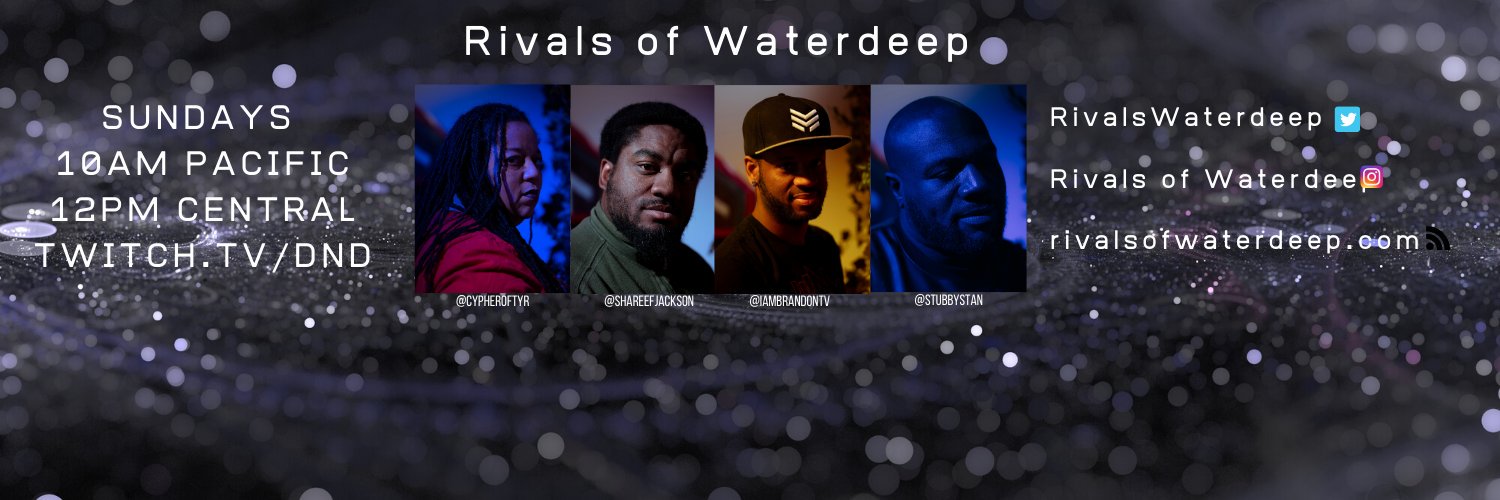
JG: Where do you see blackness in tabletop gaming going? What makes you feel hopeful for the future?
TD: What I see is more and more people getting the spotlight. More and more people being seen and valued and being part of the community; not just for coming in to fix the imaginary equivalent of Africa. It’s you are a good writer, you are a good storyteller, you’re a good developer, artist, we need you in this studio, we need you in this project. And also more people feeling confident putting their own work out there via platforms like Patreon or itch.io. Feeling the confidence of putting their work out there because they see other people doing it.
I just hope we get to a point where having a brown character, having a black character in a fantasy setting doesn’t always get the kneejerk reaction, “but, but realism!” It’s one of those things where you just hope that people can actually put the tenant of “we are all nerds and it is all fun” to use instead of saying it, but not meaning it. That’s what I hope for.
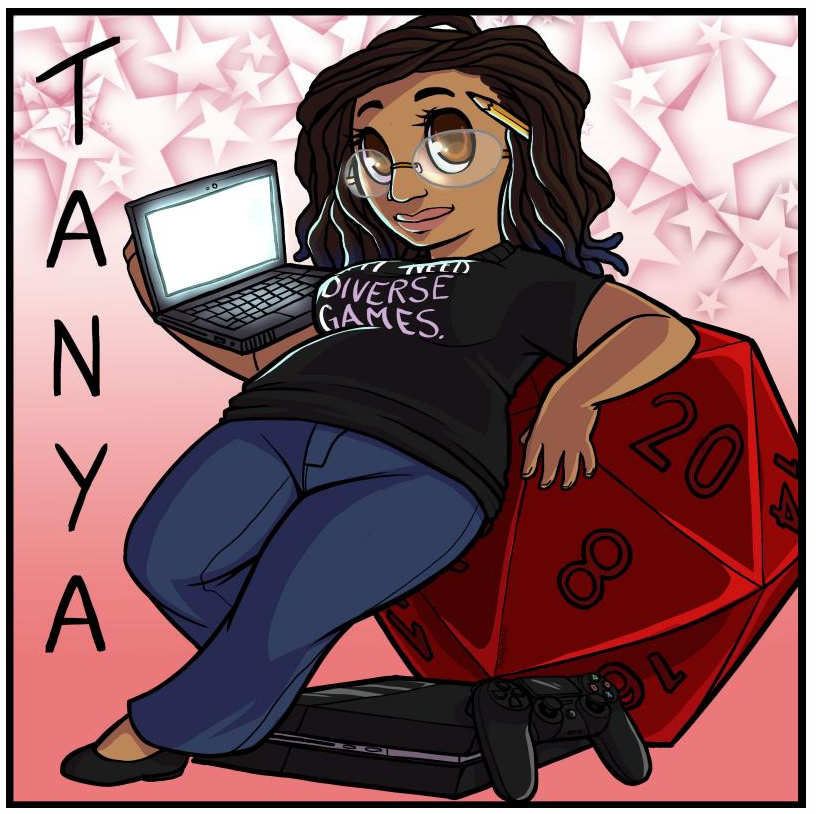
Check out this podcast from 2019 to hear Tanya elaborate more on these inspiring topics.
Don’t forget to sign up for Extra Life to help sick and injured kids in hospitals around the US and Canada by playing games!


